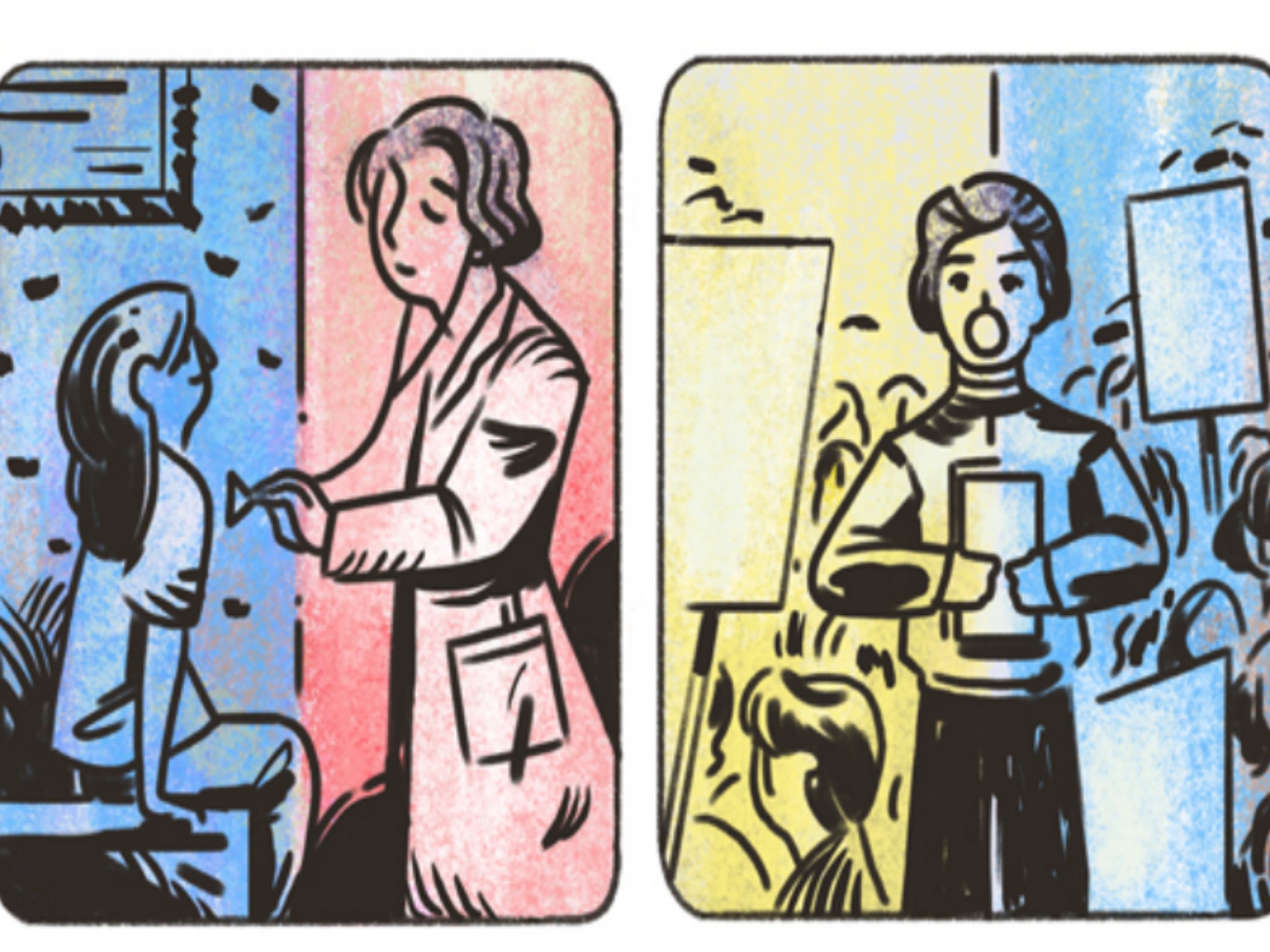Helen Rodriguez-Trias: 4 things you need to know about the inspirational doctor
This latest Google Doodle honours the women's health advocate

Physician Helen Rodriguez-Trias is being honoured for her work as a champion of underprivileged women and children with a Google Doodle on what would have been her 89th birthday.
From being called the “face of women’s health” to overcoming hurdles of racism and sexism as a Latina woman in the medical profession, Ms Rodriguez-Trias’ life was quite impressive.
Born in New York City, here are five things you should know about the paediatrician and women’s rights activist:
She led the American Public Health Association
Ms Rodriguez-Trias became the first Latina to be appointed as the chief of the organisation, which now boasts 25,000 members. The group describes itself as “the only organisation that influences federal policy, has a 140-plus year perspective and brings together members from all fields of public health”.
Upon, Ms Rodriguez-Trias’ death in California 2001 from cancer, the association established a social justice award in her name and given annually to “a person who has worked towards social justice for underserved and disadvantaged populations”.
Puerto Rico was near and dear to her heart and life’s work
Ms Rodriguez-Trias’s parents immigrated from Puerto Rico before her birth, went back to the island when she was a baby, and returned to New York in 1939.
After she graduated from high school, Ms Rodriguez-Trias wanted to study medicine, settling on studying at the University of Puerto Rico in San Juan.
She also became deeply involved in the student chapter of the Puerto Rican Nationalist Party, which among other issues, advocated for independence. She even left school in protest over the leader of the party not being allowed to speak on campus.
Ms Rodriguez-Trias eventually returned to school after getting married in New York and having three children. She earned her medical degree at the university in 1960 just before the birth of her fourth child.
Due in part to her opening of the island’s first newborn care centre, infant mortality at that particular hospital decreased by 50 per cent in three years.
Women’s rights
Ms Rodriguez-Trias was no stranger to the difficulties of being a successful woman of colour. She said once that “the experiences of my own my mother, my aunts and sisters, who faced so many restraints in their struggle to flower and realise their full potential” were what drove her to advocate for women in her community and low-income populations all over the world.
Working as a physician in the Bronx borough of New York in the 1970s, Ms Rodriguez-Trias said of her and others’ activism: “What brought me to the women's movement was the women's health movement”.
She felt women brought a “feminist perspective” to female-specific health issues like abortion and maternal health, a novel concept back then.
In the 1980s, as the HIV/AIDS epidemic was grabbing the attention of the world, Ms Rodriguez-Trias worked to help women infected by the virus, an often-ignored demographic.
A presidential award
For her work, Ms Rodriguez-Trias was awarded the Presidential Citizen’s Medal by then-President Bill Clinton in 1992. He said she was an ''outstanding educator and dynamic leader in public health”.
Join our commenting forum
Join thought-provoking conversations, follow other Independent readers and see their replies
Comments